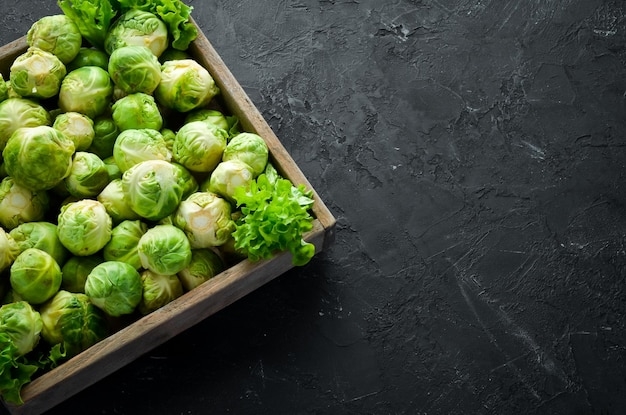Greek Souvlaki is a popular Greek dish that consists of small pieces of meat, typically pork, skewered and grilled to perfection. Many people enjoy the dish for its delicious taste, but it is also an excellent source of protein, calcium, and iron. In this article, we will explore the nutritional value of Greek Souvlaki and how it can benefit your health.
Protein Content
Protein is an essential nutrient that plays a vital role in the body. It is responsible for building and repairing tissues, as well as supporting the immune system. Greek Souvlaki is an excellent source of protein, with approximately 20g of protein per 100g of meat.
Calcium Content
Calcium is a crucial mineral that is necessary for strong bones and teeth. It also plays a vital role in muscle function and nerve transmission. Greek Souvlaki contains a fair amount of calcium, providing approximately 40mg of calcium per 100g of meat.
Iron Content
Iron is an essential mineral that is necessary for the formation of red blood cells. It also plays a crucial role in carrying oxygen throughout the body. Greek Souvlaki is an excellent source of iron, containing approximately 1.5mg of iron per 100g of meat.
Does Greek Souvlaki contain any other important nutrients?
Yes, Greek Souvlaki also contains other important nutrients, including:
- Vitamin B12
- Vitamin B6
- Zinc
- Magnesium
- Phosphorus
How can Greek Souvlaki benefit your health?
Greek Souvlaki can benefit your health in several ways:
- Protein helps to build and repair tissues, as well as supporting the immune system.
- Calcium is necessary for strong bones and teeth. It also plays a vital role in muscle function and nerve transmission.
- Iron is essential for the formation of red blood cells and carrying oxygen throughout the body.
- Vitamin B12 is essential for the nervous system and red blood cell formation. It also helps to prevent anemia.
- Vitamin B6 helps to produce neurotransmitters in the brain. It also helps to maintain healthy blood sugar levels.
- Zinc is essential for a healthy immune system and wound healing.
- Magnesium helps to regulate muscle and nerve function. It also helps to regulate blood pressure and blood sugar levels.
- Phosphorus is necessary for strong bones and teeth. It also plays a vital role in the formation of DNA and RNA.
How can you make Greek Souvlaki at home?
If you’d like to try making Greek Souvlaki at home, here’s a simple recipe:
Ingredients:
- 1 pound of pork tenderloin, cut into bite-sized pieces
- 1/4 cup of olive oil
- 2 tablespoons of lemon juice
- 2 cloves of garlic, minced
- 1 teaspoon of dried oregano
- 1/2 teaspoon of salt
- 1/4 teaspoon of black pepper
Instructions:
- In a large bowl, combine the olive oil, lemon juice, garlic, oregano, salt, and black pepper. Add the pork and toss to coat. Cover the bowl and marinate the pork in the refrigerator for at least 2 hours or overnight.
- Preheat the grill to medium-high heat. Thread the pork onto skewers and discard any leftover marinade.
- Grill the skewers, turning occasionally, for 12-15 minutes or until the pork is cooked through.
- Serve the Greek Souvlaki with pita bread, tzatziki sauce, and Greek salad.
FAQs
1. Is Greek Souvlaki healthy?
Yes, Greek Souvlaki is healthy. It is an excellent source of protein, calcium, and iron, as well as other important nutrients.
2. Can I use chicken instead of pork for Greek Souvlaki?
Yes, you can use chicken instead of pork for Greek Souvlaki. Chicken is also a great source of protein.
3. Can I make Greek Souvlaki without a grill?
Yes, you can make Greek Souvlaki without a grill. You can cook the meat in a skillet or in the oven.
4. How long should I marinate the meat for Greek Souvlaki?
You should marinate the meat for at least 2 hours or overnight for the best flavor.
5. What should I serve with Greek Souvlaki?
You can serve Greek Souvlaki with pita bread, tzatziki sauce, and Greek salad.
6. Is Greek Souvlaki gluten-free?
Greek Souvlaki is gluten-free if you serve it with gluten-free pita bread and tzatziki sauce.
7. Can I freeze Greek Souvlaki?
Yes, you can freeze Greek Souvlaki. Make sure to freeze the meat separately from any sauces or bread.
8. How long does Greek Souvlaki last in the refrigerator?
Greek Souvlaki will last up to 4 days in the refrigerator if stored in an airtight container.
9. Is Greek Souvlaki keto-friendly?
Greek Souvlaki can be keto-friendly if you omit the pita bread and serve it with a keto-friendly sauce.
10. How many calories are in Greek Souvlaki?
There are approximately 260 calories in 100g of Greek Souvlaki.
Conclusion
Greek Souvlaki is not only delicious but also a nutritious meal. It is an excellent source of protein, calcium, and iron, as well as other important nutrients. With the simple recipe provided, you can also enjoy this Greek delicacy at home.

















































